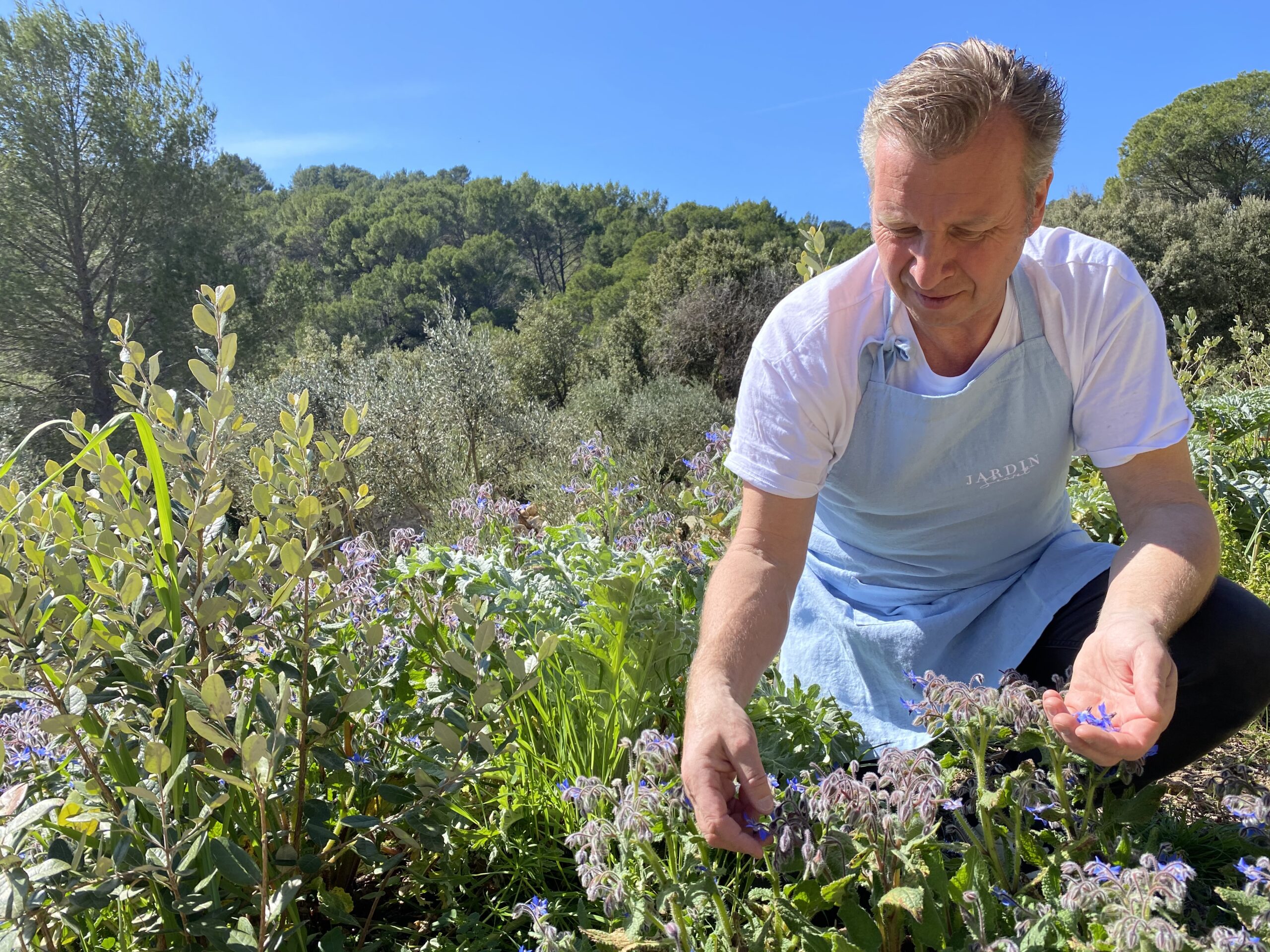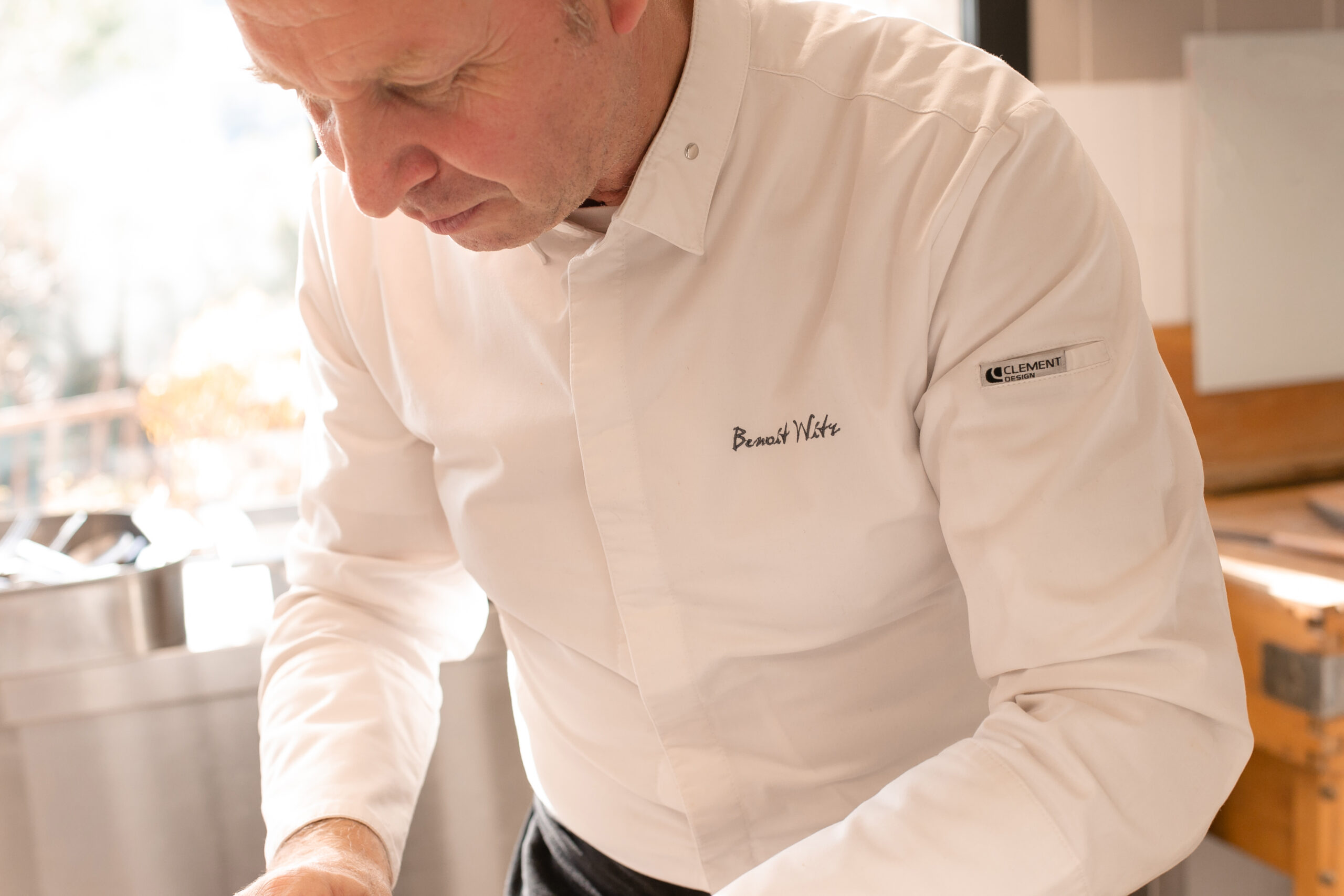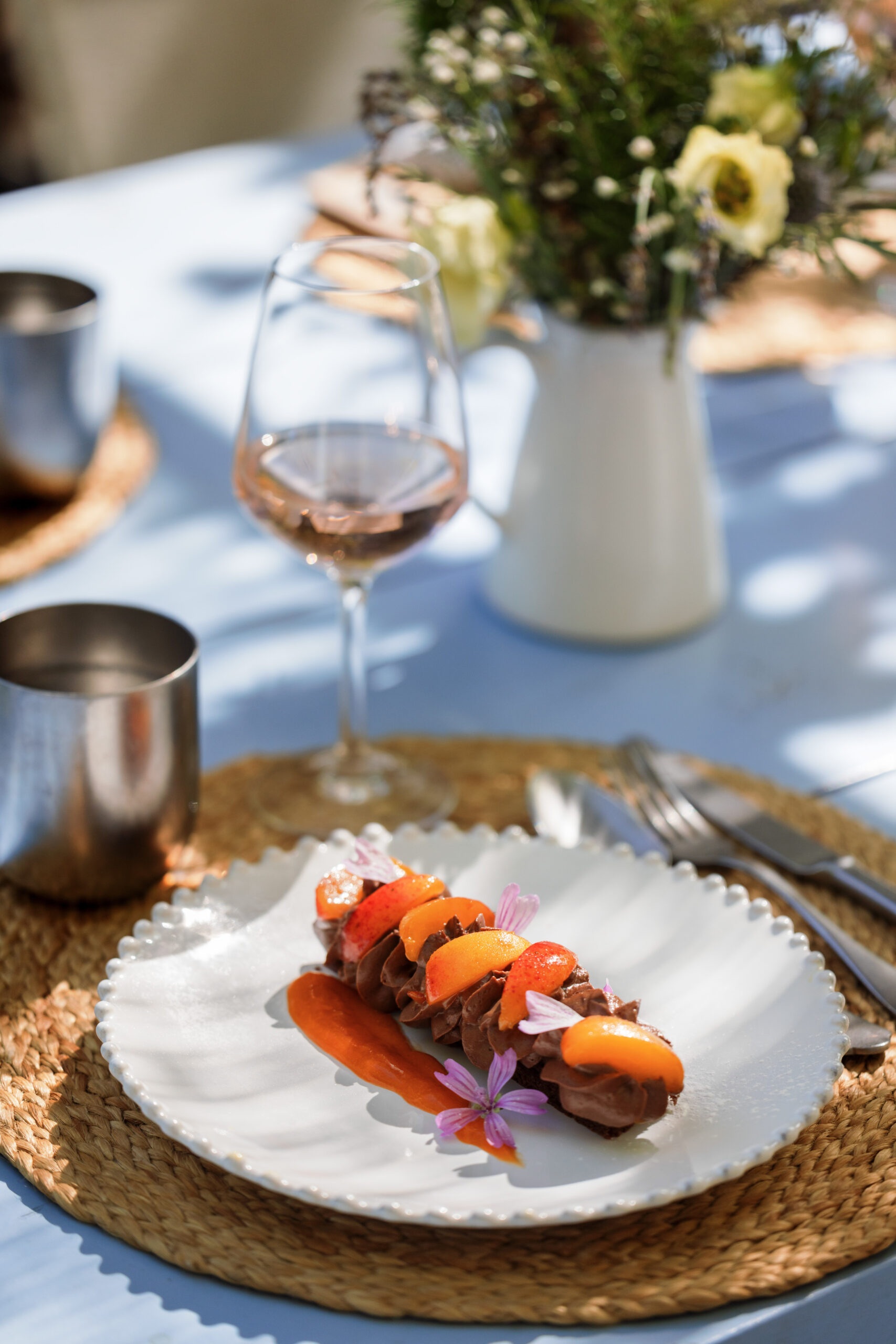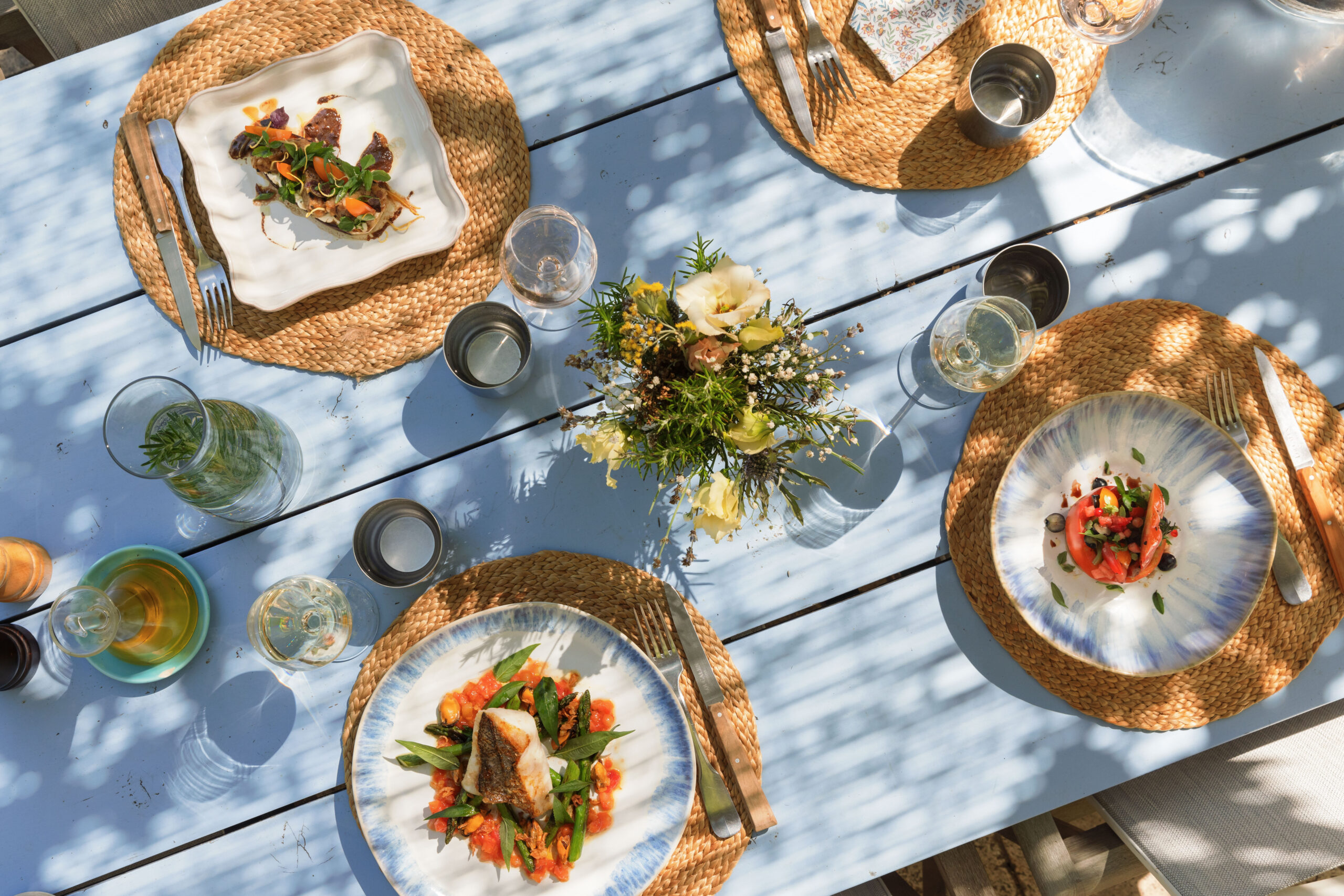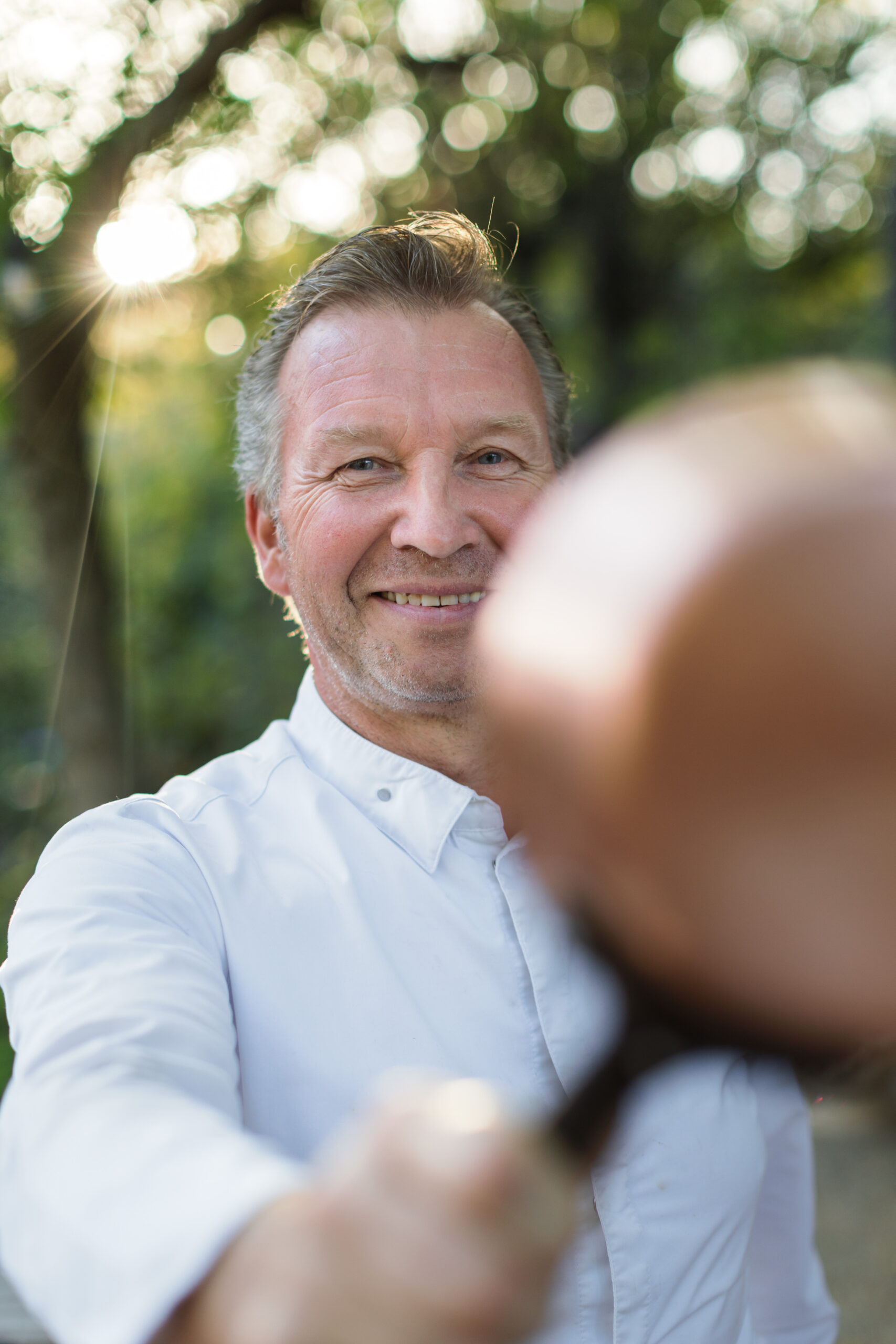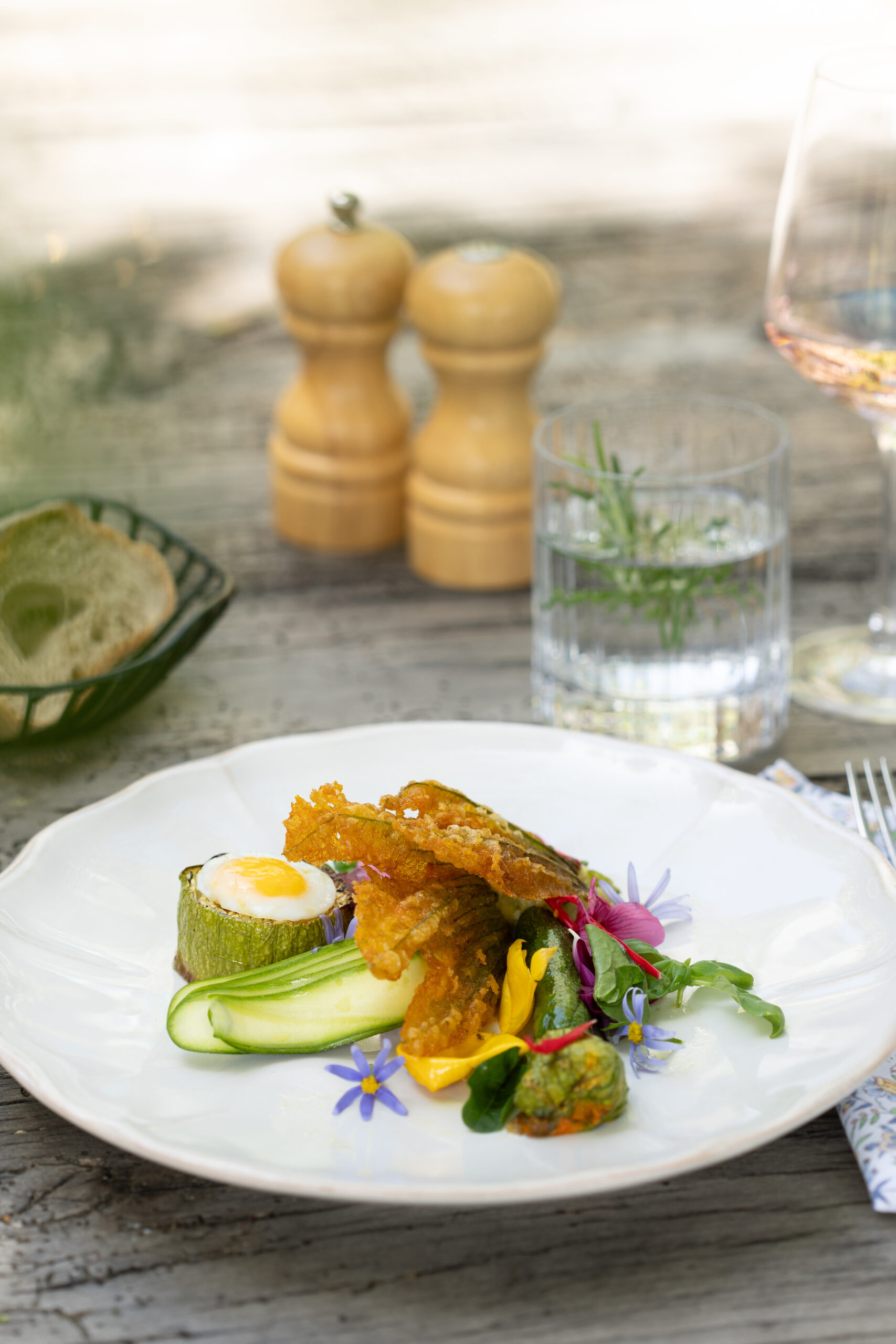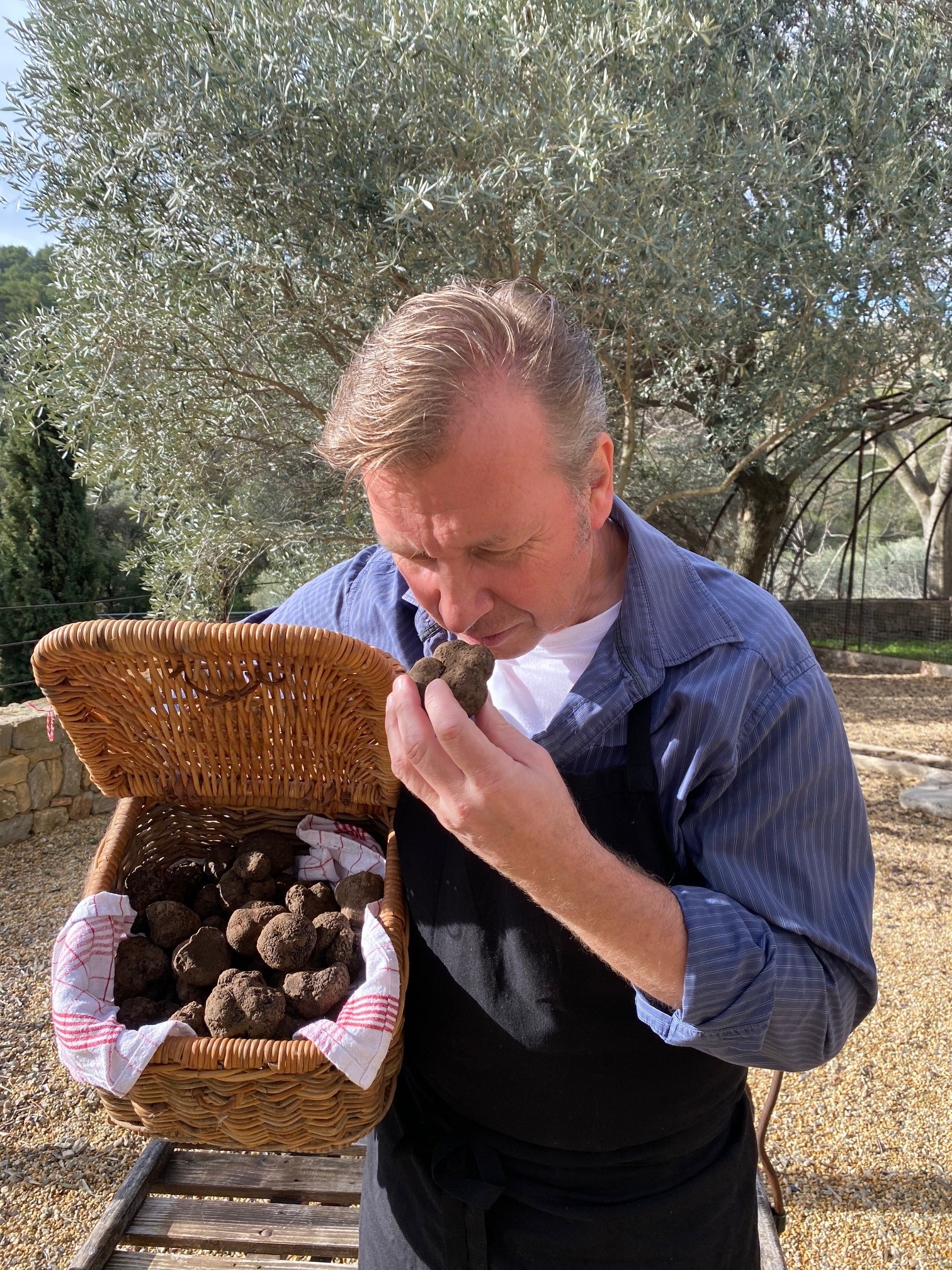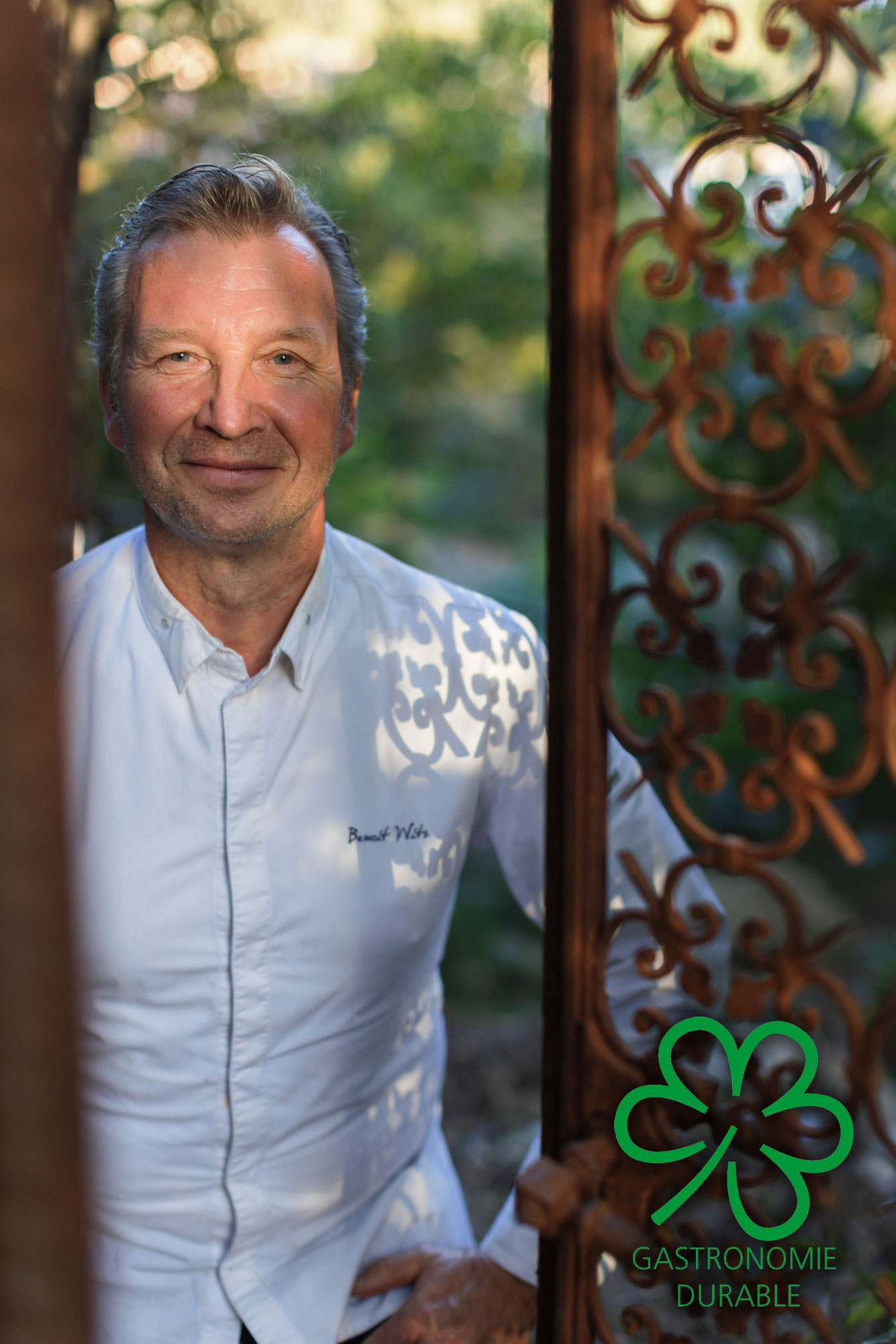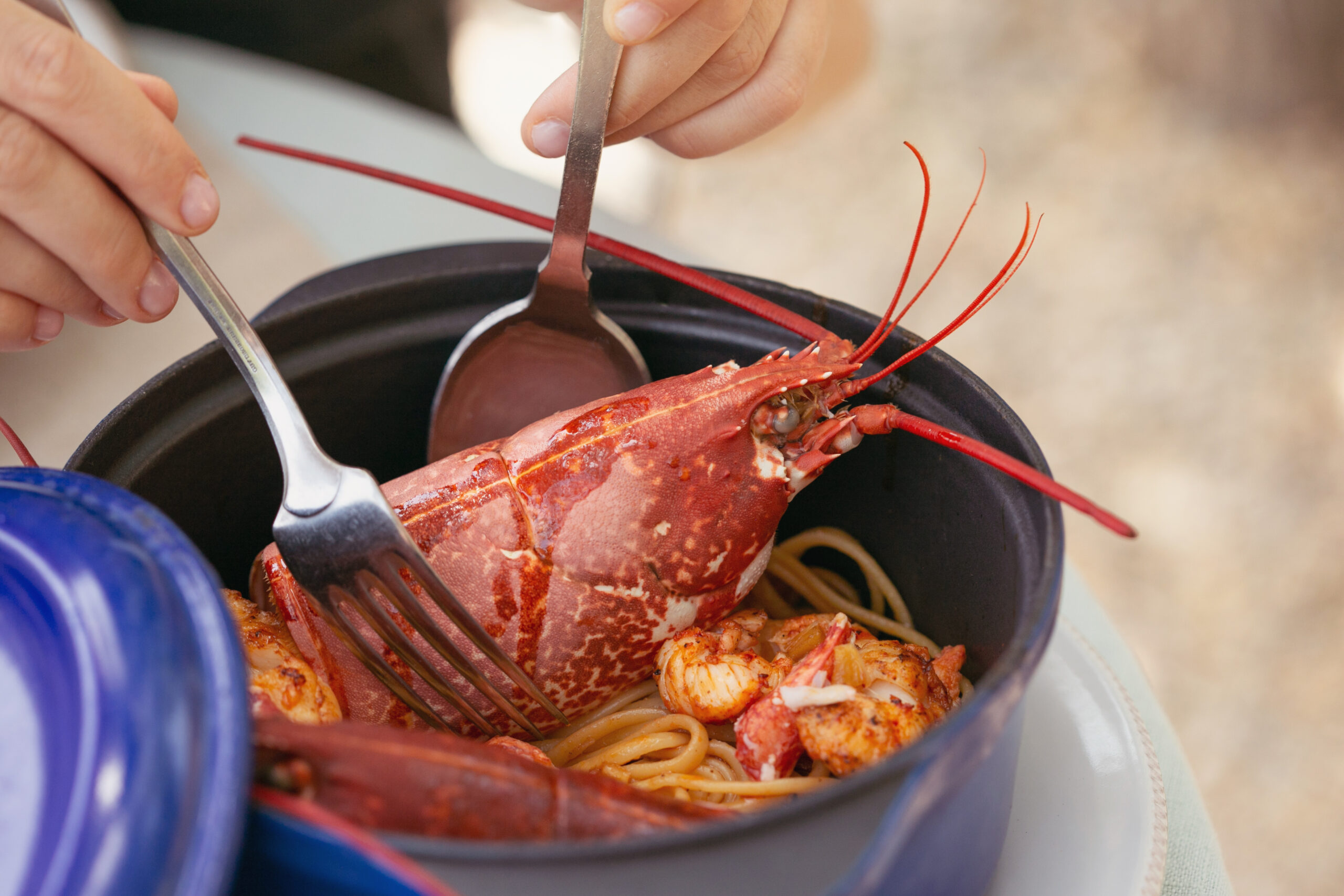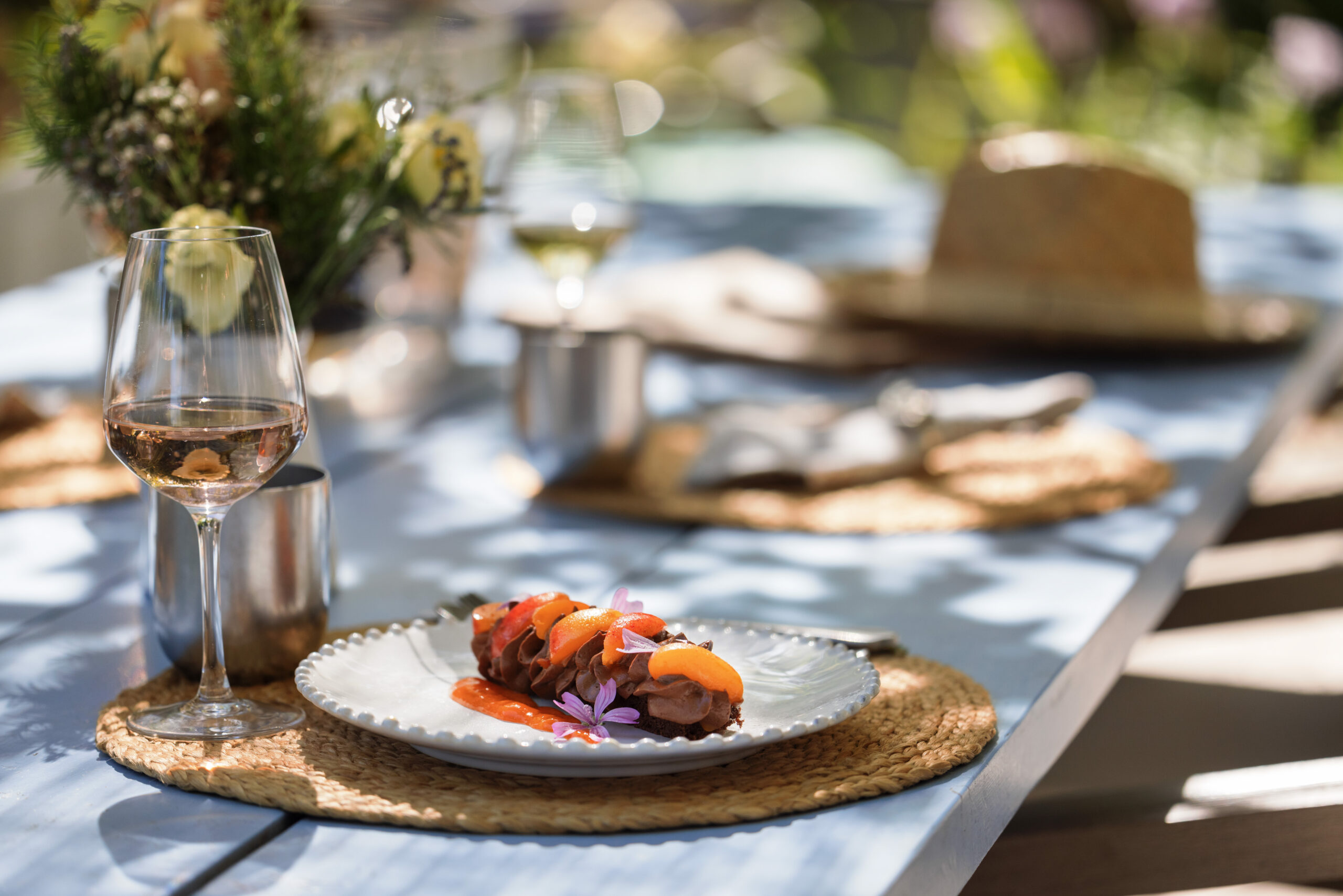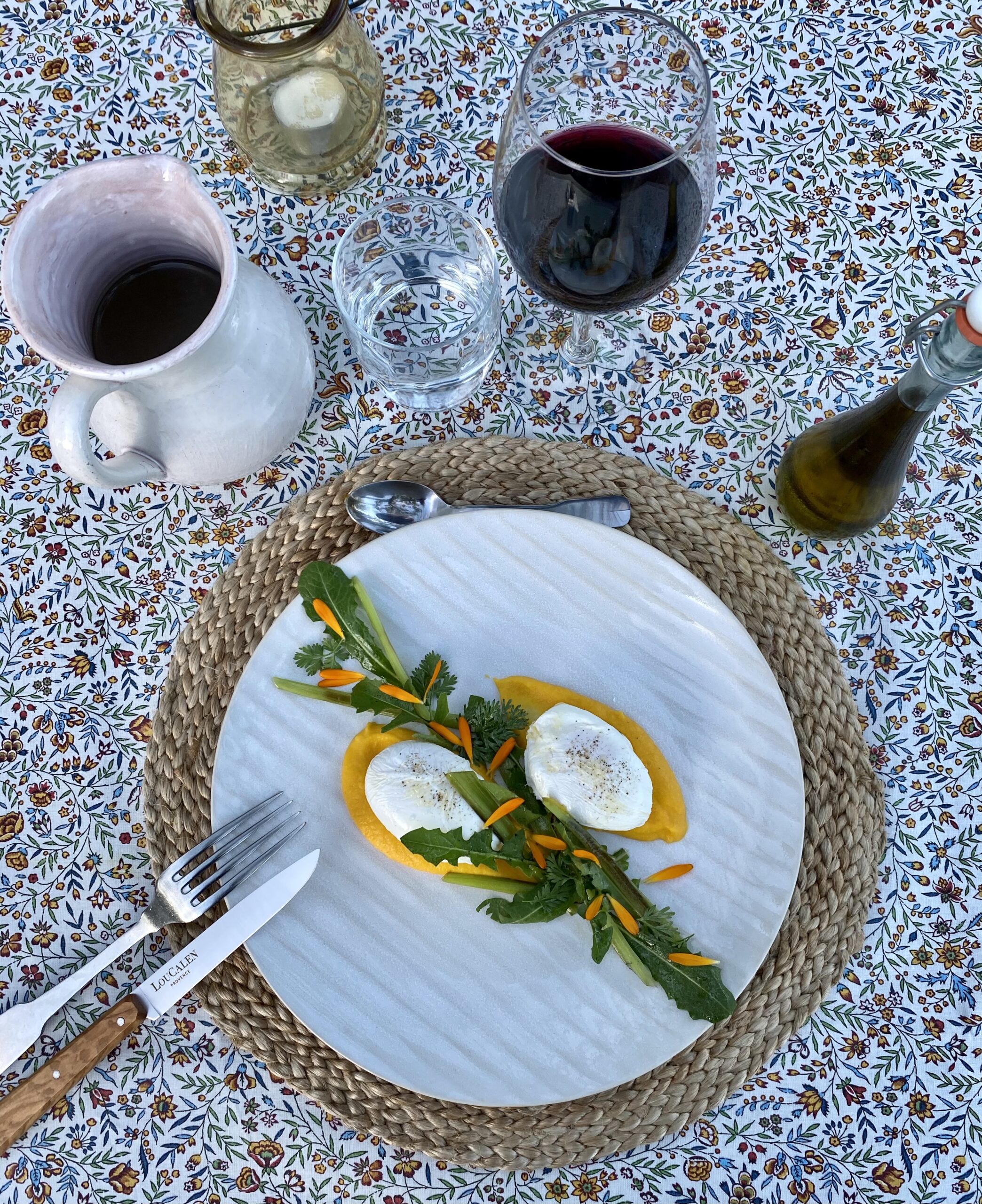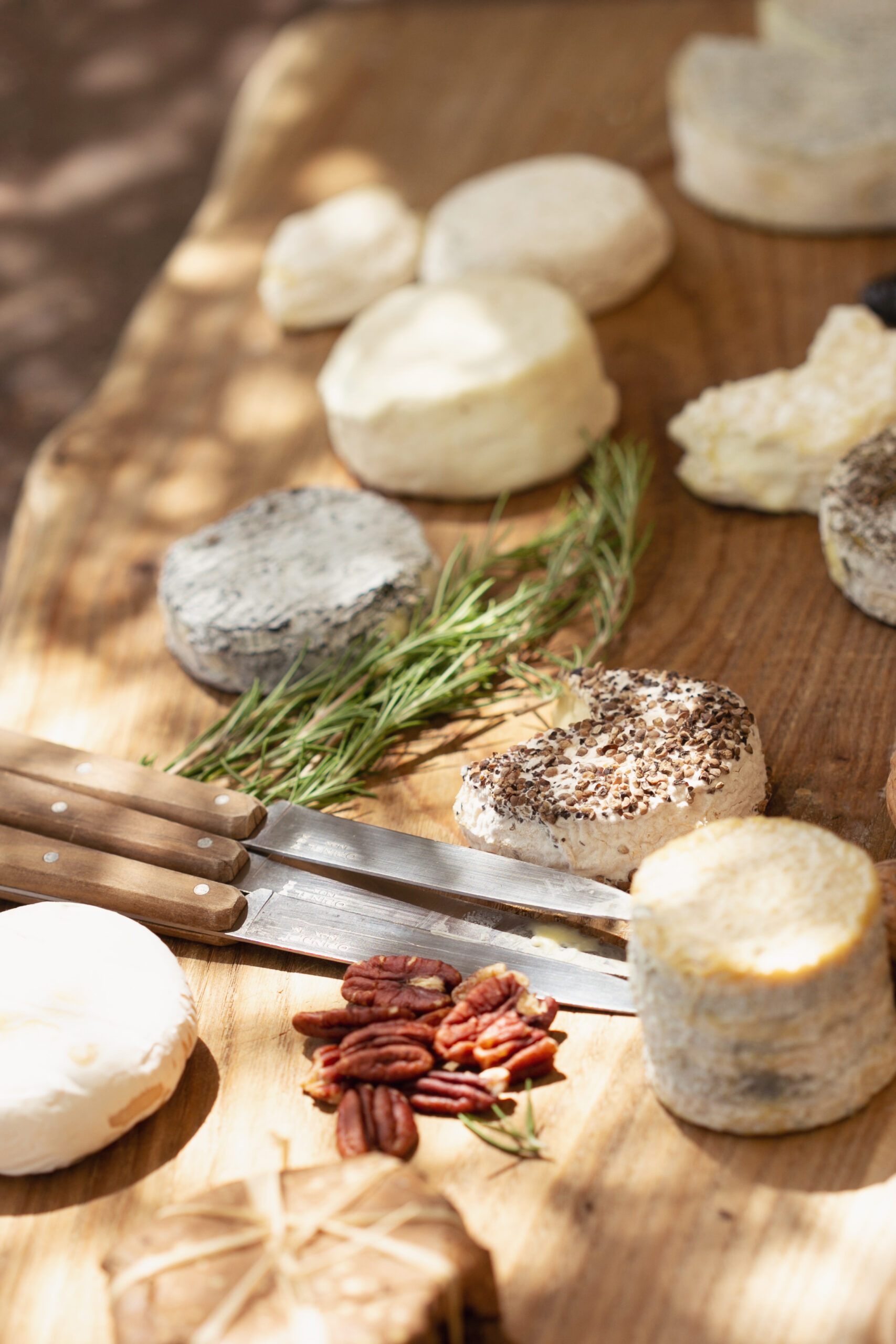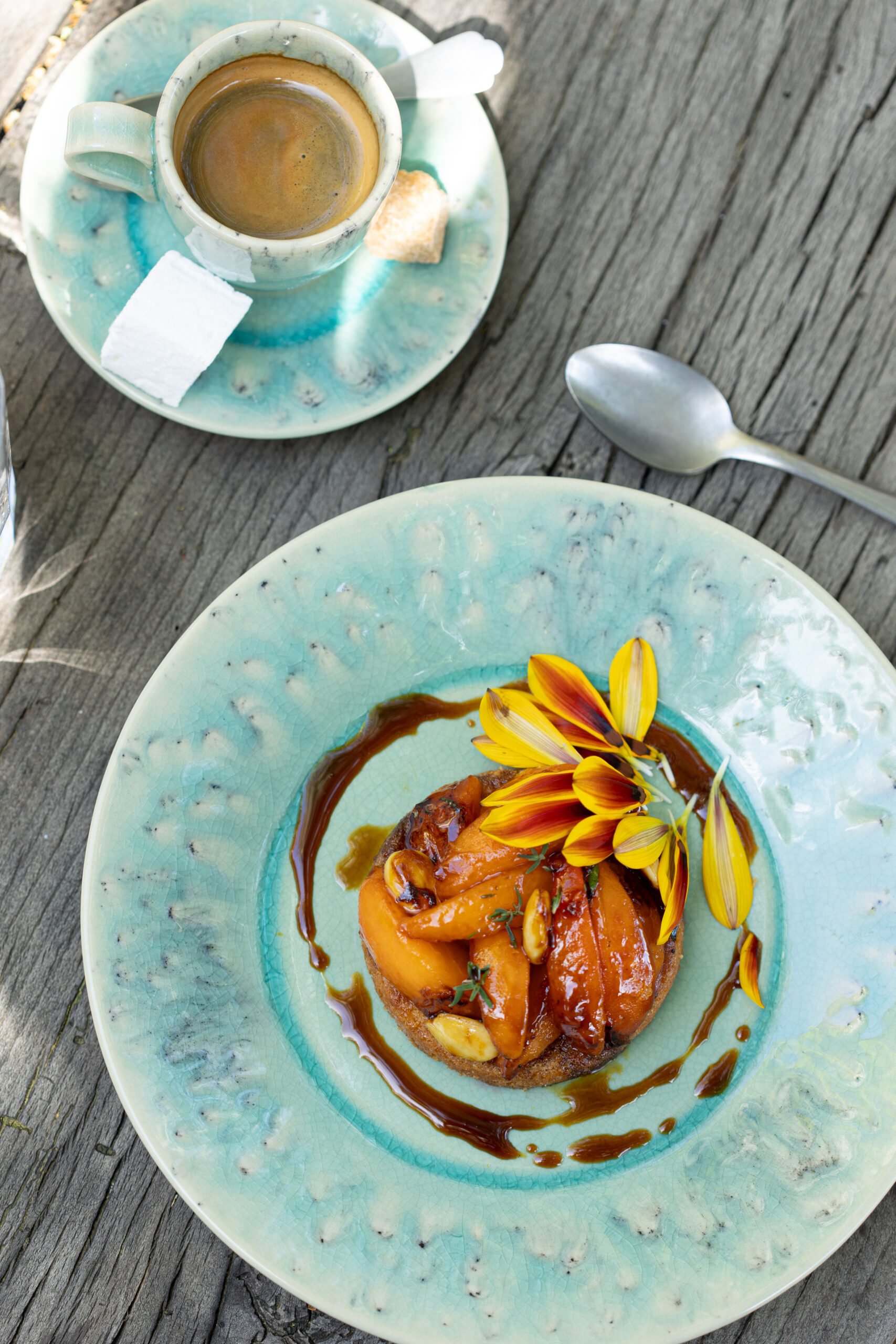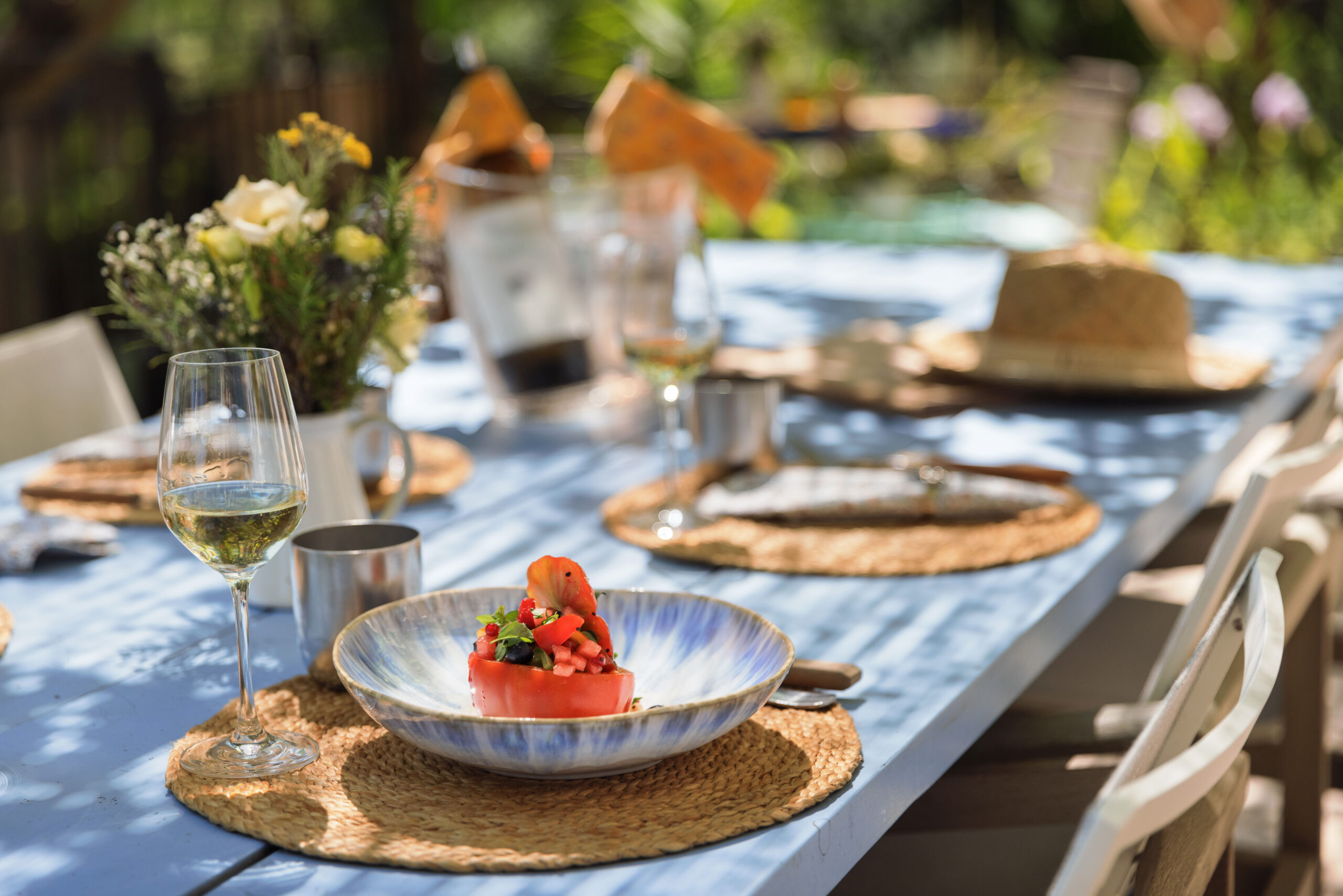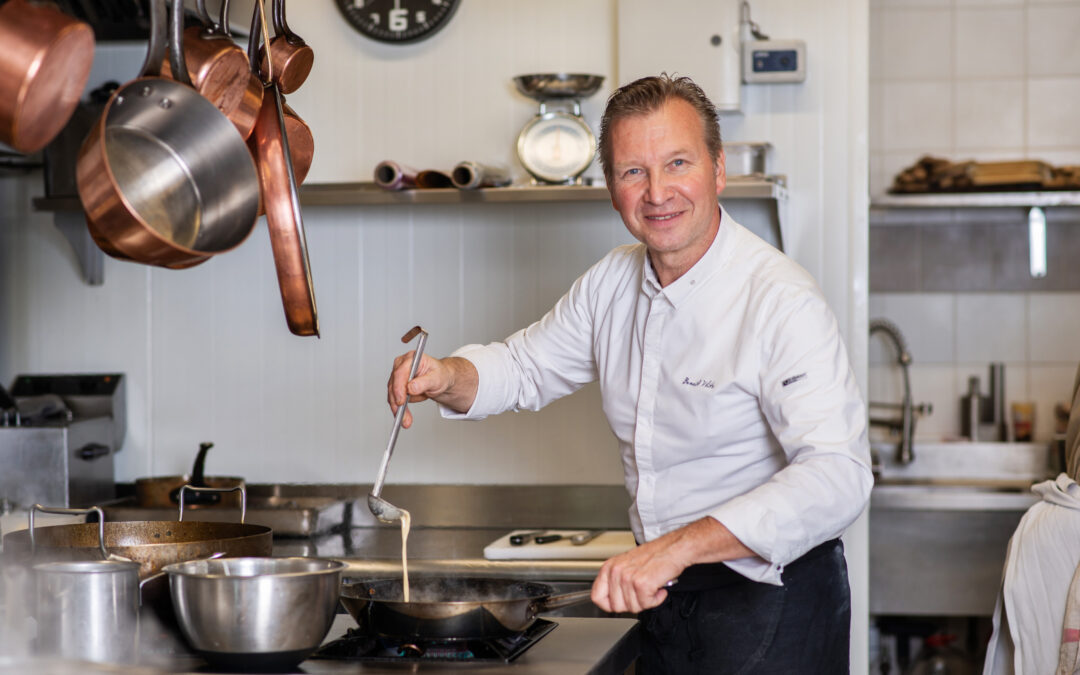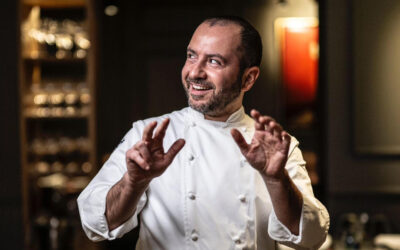In a world of over-styled tasting menus and trend-driven gastronomy, Michelin Green Star chef Benoit Witz is quietly going in the opposite direction.
At Le Jardin Secret, the intimate restaurant inside the Lou Calen estate in Cotignac, Provence, there’s no menu. No “concept.” No imported ingredients from far-flung lands. Instead, guests sit down to a surprise – whatever produce is freshest that morning, transformed into something elegant, nourishing and deeply rooted in place.
“I don’t ask what the guest wants – I ask what the garden wants,” says Witz. “That’s where it begins. The ingredient speaks first.”
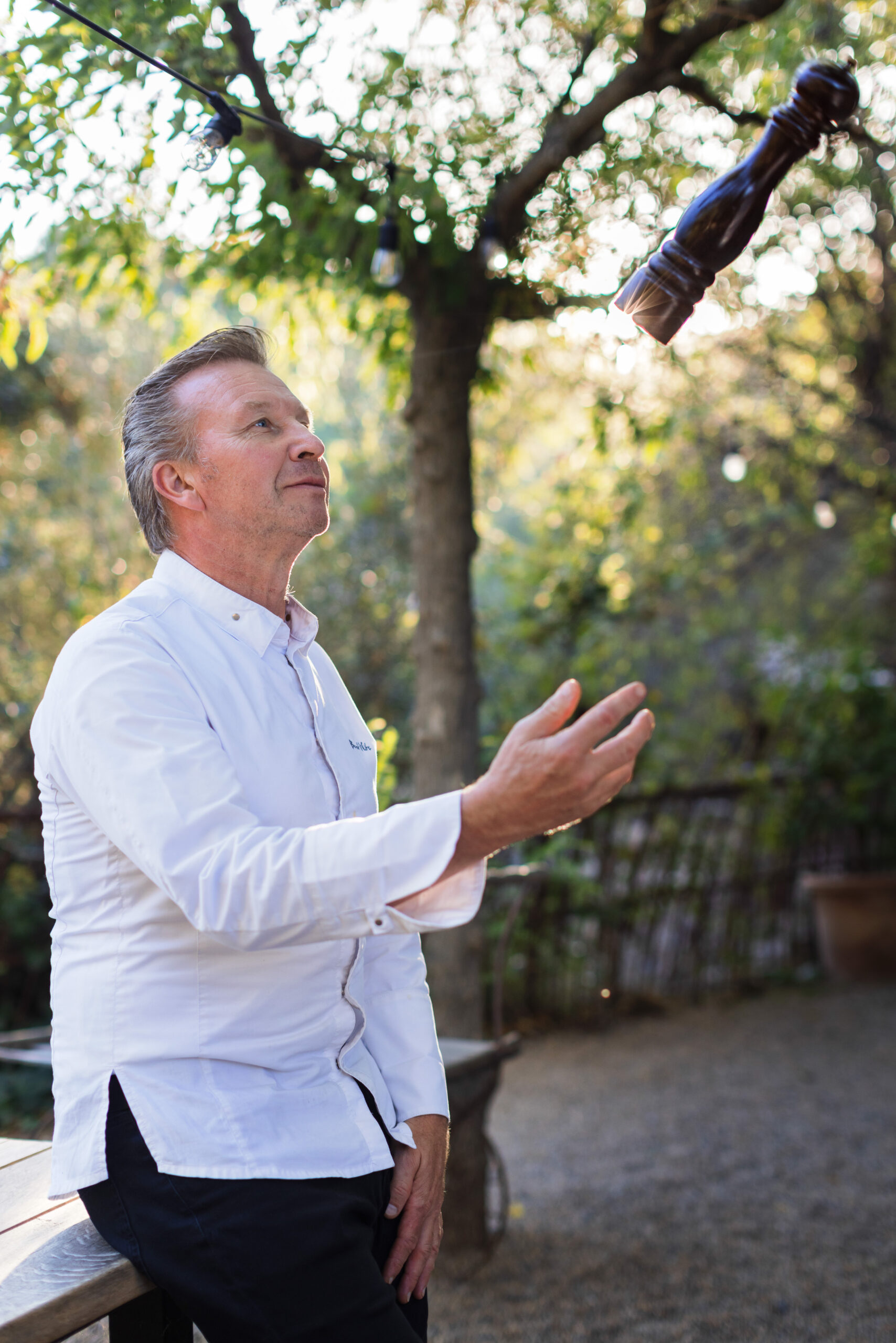
Every morning, nearby producers – most within 50 kilometres – arrive at the kitchen door with the best of what’s growing: early spring asparagus, heritage tomatoes, courgette blossoms, local honey, herbs cut just hours earlier. What doesn’t come from partner farms is often picked on-site from the estate’s own wild and intentionally un-manicured gardens, where fruit trees, wildflowers and vegetables grow without chemicals or design.
“It’s about intuition,” Witz explains. “My training is from life, not from a manual. My grandmother taught me to cook what’s in front of you, with care and rhythm. That’s still how I cook today.” Born and raised in modest circumstances in southern France, Witz’s culinary origins are not found in prestigious schools or Michelin kitchens, but in his grandmother’s home, shelling peas and tasting broths made from nothing but time and instinct. That memory – of food as comfort, as presence – still anchors his approach.
The Luxury of Restraint
There’s a reason Le Jardin Secret earned the Michelin Green Star, a distinction reserved for restaurants showing outstanding commitment to sustainable gastronomy. But Witz is quick to wave away the label. “It’s not a badge – it’s a responsibility,” he says. “If you truly respect nature, you don’t overcomplicate what it gives you.” That respect is evident in every plate: dishes are cooked à la minute, not just for flavour, but to preserve nutrients and freshness.

dessert
Nothing is prepared in advance – not because it’s trendy, but because Witz believes food loses its integrity when rushed or pre-made. “The longer food sits, the more it forgets what it was,” he says. “We serve it when it’s still alive.”
The kitchen avoids waste, designs menus based on surplus, and reuses ingredients with intent. Every plate tells a story of place: olive oil pressed a few villages over, saffron grown nearby, edible flowers from the path behind the kitchen. Even the breads and butters are developed around the seasons.
A Different Kind of Fine Dining
Dining at Le Jardin Secret is a different experience by design. The restaurant, which sits in the former residence on the estate, hasn’t been remodelled into a sleek showroom. Instead, it’s made to feel like a Provençal home. Guests eat in small rooms, where the walls still carry the character of the past, and the setting is warm, quiet, and personal. There are no white gloves. No formalities. Just a focus on food, place, and presence. “Luxury isn’t about what you add – it’s about what you choose to leave out,” Witz says. “Silence can be luxurious. So can simplicity. So can time.”

Legumes-de-saison
This ethos fits perfectly into Lou Calen’s wider identity as a sustainable retreat with no televisions in rooms, an on-site microbrewery and pastis bar, and a regular roster of hands-on workshops (think basket weaving, wood carving, and botanical walks). The whole estate is designed to slow guests down, reconnect them to nature, and let them rediscover joy in simplicity.
What’s Next for Witz
Far from building an empire, Witz is focused on writing a book that documents his philosophy of food as storytelling and stillness. He’s also developing seasonal tasting experiences at Lou Calen- still menu-less, but themed around a single ingredient presented in multiple textures and forms. Above all, he hopes to continue cooking in a way that feels honest. “I’m not here to impress,” he says. “I’m here to nourish. Not just the body – but memory, feeling, connection. That’s the kind of luxury we don’t talk about enough.” And in a culinary world that too often celebrates excess, Le Jardin Secret offers something rare: the kind of meal you don’t just remember for its flavour, but for how it made you feel.
Do you have a favourite time of the year or set of ingredients that you look forward to working with?
Spring is always a moment of renewal. The wild herbs, tender vegetables, and first flowers after winter – they bring a kind of gentle energy to the plate. But I must say, I also love autumn, with the arrival of mushrooms and the start of the hunt. Both seasons bring their own beauty and inspiration.
What would you do if you weren’t a chef?
I would be a humanitarian – to help people, to feed people. Cooking is my language, so even outside of the restaurant, I would still find a way to nourish others.

Homard
Do your personal preferences influence the menu at all?
Yes, I need to love what I cook, but I am always open to requests from my colleagues and customers. The menu changes based on what’s growing, what inspires me that day. I let the seasons and the moment guide me more than my own dictates.
What do you think is the most over-hyped food trend currently?
Everything that is sprouted – or cooking with ingredients that were once given only to animals, like kohlrabi and beets. For me, simplicity and authenticity always win over gimmicks.
When are you happiest?
When I’m in the middle of nature. There is a peace that allows me to recharge my batteries – whether I’m walking through a forest, gathering herbs, or simply breathing in the air.

Oeufs-poches
When you’re not in the kitchen where can you be found?
At home, quietly, with family or friends. I value stillness and the company of loved ones.
Where is your favourite place to dine?
Henry’s Grill à Ongle, which sadly no longer exists. Otherwise, at home by the fire, grilling fish – simple and perfect.
What’s your favourite takeaway or comfort food?
A cheese or tomato pie. Comfort is found in the humble dishes that bring warmth and nostalgia.

Fromage
What makes the local food scene so exciting?
It’s authentic. The producers, winemakers, and craftsmen follow nature, not trends. There’s sincerity, tradition, and a real passion in that – and you can taste it.
Which is the dish you’ve created that you are most proud of and why?
My vegetable cocotte with seasonal fruit, accompanied by a condiment made from vegetable tops. It limits the use of animal protein, celebrates the whole plant, and reflects my values of respect for nature and reducing waste.

Herrisson-abricot
You’re having friends over for dinner tonight. What’s on the table?
A pesto soup – light, aromatic, and full of flavour from the garden.
Name your favourite city that has it all: food, culture, and nightlife.
Paris. It’s a city where gastronomy, art, and life intertwine beautifully.
Can you tell us more about the cuisine at your restaurants?
It’s an intuitive kitchen, without a fixed menu. It is guided by the season, the moment, and the products available. I cook with heart and a deep respect for ingredients, always aiming for freshness, balance, and sincerity.
Recipe of “The Travelling Zucchini” by Benoît Witz
Serves 6
Ingredients
Method
-
Finely cut the zucchini, spring onions, garlic, and celery into julienne strips. Fry briskly in olive oil with salt and pepper. Add the basil leaves at the end.
-
Mash the goat cheese with a fork and stir it into the vegetables.
-
Quickly dip 2 rice papers in water, then place half of a zucchini flower, some country flowers, and mint leaves on top. Add the vegetable and cheese mixture, then roll into spring rolls.
-
Grate the raw tomato to make a vinaigrette, season well, and serve 2 rolls with the dressing.
-
Garnish with basil leaves, add a drizzle of olive oil, and finish with a pinch of fleur de sel and pepper.

